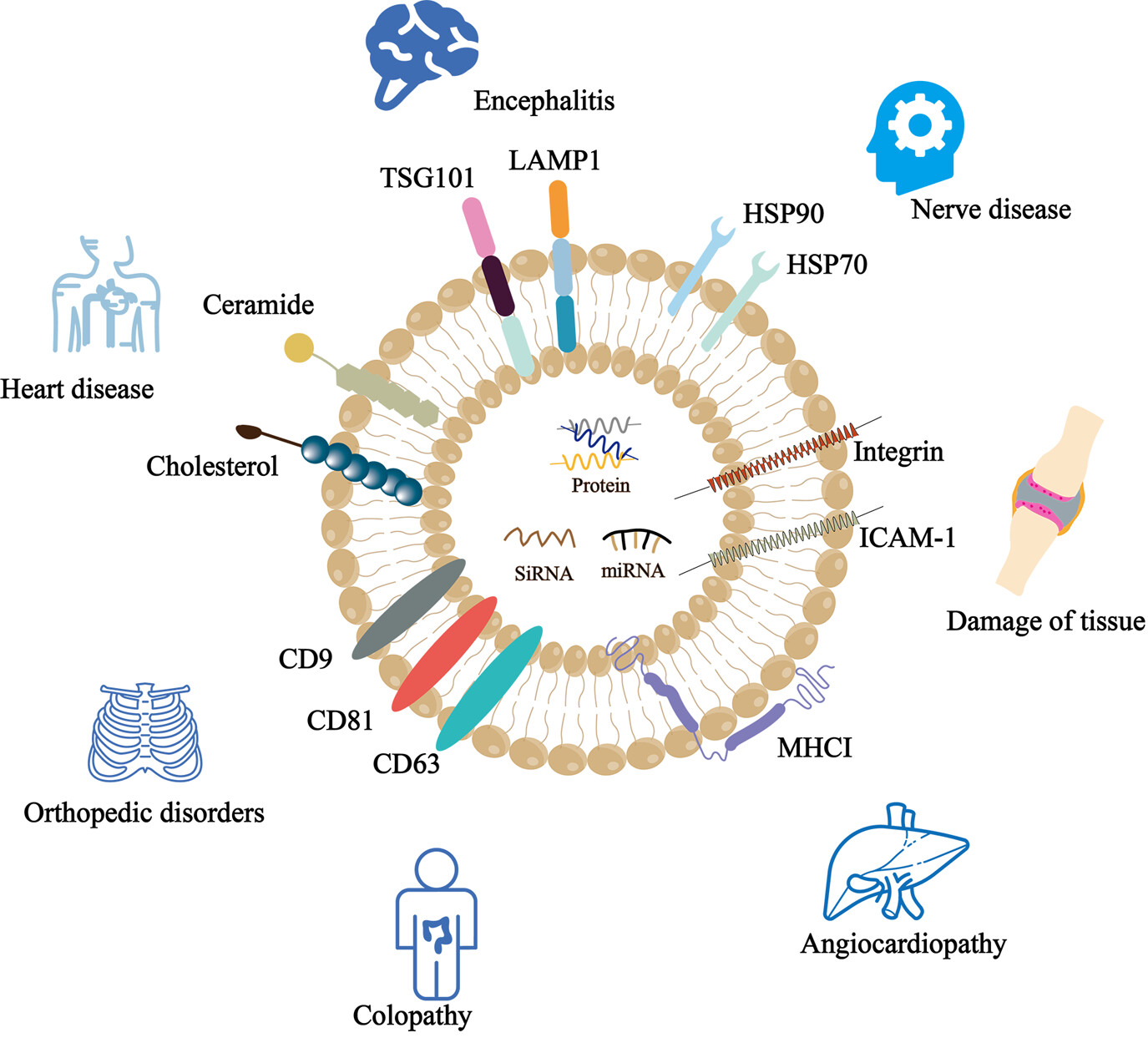DHMEQ-Expressed Exosome Modification Service
- Inhibition of macrophage phagocytic function: DHMEQ suppresses NF-κB activation, leading to reduced engulfment and digestion of microbes and debris by macrophages.
- Downregulation of surface receptor expression: DHMEQ decreases the expression of surface receptors such as TLR2 and TLR4, dampening macrophage responsiveness to external stimuli.
- Disruption of cytoskeletal stability: By inhibiting microtubule polymerization, DHMEQ reduces cytoskeletal integrity, thereby impairing the phagocytic capacity of macrophages.
DHMEQ-Expressed Exosome Modification Service involves the pretreatment of exosomes with Dehydroxymethylepoxyquinomicin (DHMEQ) to suppress macrophage-mediated phagocytosis, thereby enhancing the in vivo circulation and delivery efficiency of exosome-based carrier systems.

Huang L. et al. ACS Omega. 2023.
Exosomes, as natural nanoscale delivery carriers, have shown tremendous promise in biomedical applications. However, phagocytic clearance by macrophages remains a major obstacle limiting their delivery efficiency and therapeutic potential. DHMEQ is a novel anti-inflammatory compound known for its irreversible inhibition of the NF-κB signaling pathway, as well as its ability to modulate macrophage-mediated phagocytosis. DHMEQ downregulates phagocytic activity through the following mechanisms:
Through these mechanisms, DHMEQ pretreatment helps exosomes evade immune clearance, prolonging their circulation time and improving delivery efficiency in vivo.
Leveraging advanced exosome engineering platforms, MtoZ Biolabs offers the DHMEQ-Expressed Exosome Modification Service to incorporate the anti-inflammatory small molecule DHMEQ into exosome-based systems. This strategy is designed to reduce macrophage-mediated phagocytosis and enhance the systemic stability and delivery potential of exosomes, providing strong technical support for the development of efficient delivery systems and immunomodulatory exosome therapeutics.
Analysis Workflow
MtoZ Biolabs has established a robust exosome engineering platform and offers a flexible, efficient DHMEQ-Expressed Exosome Modification Service. The workflow includes:
1. Exosome Isolation and Purification
Exosomes are isolated and purified using ultracentrifugation, density gradient centrifugation, or size-exclusion chromatography (SEC), etc.
2. DHMEQ Loading
DHMEQ is loaded into exosomes using techniques such as sonication or electroporation.
3. Exosome Characterization
The DHMEQ-loaded exosomes are thoroughly characterized using transmission electron microscopy (TEM), nanoparticle tracking analysis (NTA), and Western blotting, etc.
4. Functional Assessment
In vitro and in vivo assays are performed to evaluate the anti-phagocytic performance and immune evasion capabilities of DHMEQ-modified exosomes.
Applications
DHMEQ-modified exosomes represent an strategy for exosome engineering and hold great potential in both research and therapeutic contexts, including but not limited to:
Enhanced Delivery Efficiency
DHMEQ treatment prolongs exosome circulation time in the bloodstream, reduces macrophage-mediated clearance, and improves delivery efficiency to target tissues.
Immune Evasion
By helping exosomes evade recognition and phagocytosis by the mononuclear phagocyte system (MPS), DHMEQ modification improves in vivo stability and targeting efficiency.
Inflammation-Related Disease Models
Given DHMEQ’s potent anti-inflammatory properties, DHMEQ-modified exosomes are valuable tools for studying inflammatory disease models.
Tumor and Immunotherapy Applications
In cancer immunotherapy, DHMEQ-modified exosomes enhance the delivery of anti-cancer drugs and support immune modulation for improved therapeutic efficacy.
FAQ
Q. Can DHMEQ-Expressed Exosomes be Used in In Vivo Studies?
Yes. DHMEQ-modified exosomes are well-suited for in vivo applications, particularly for evaluating their effects on immune responses and tumor progression.
Q. Can I Provide My Own Cell Lines or Cargo for this Project?
Absolutely. We accept customer-supplied cell lines for DHMEQ-exosome production and support the co-loading of custom cargos (e.g., miRNA, siRNA, proteins, small-molecule drugs). Additionally, we can assess the safety and exosome secretion efficiency of DHMEQ treatment in your specific cellular background. MtoZ Biolabs offers a fully customized, end-to-end solution to ensure functional compatibility and optimal outcomes.
How to order?







